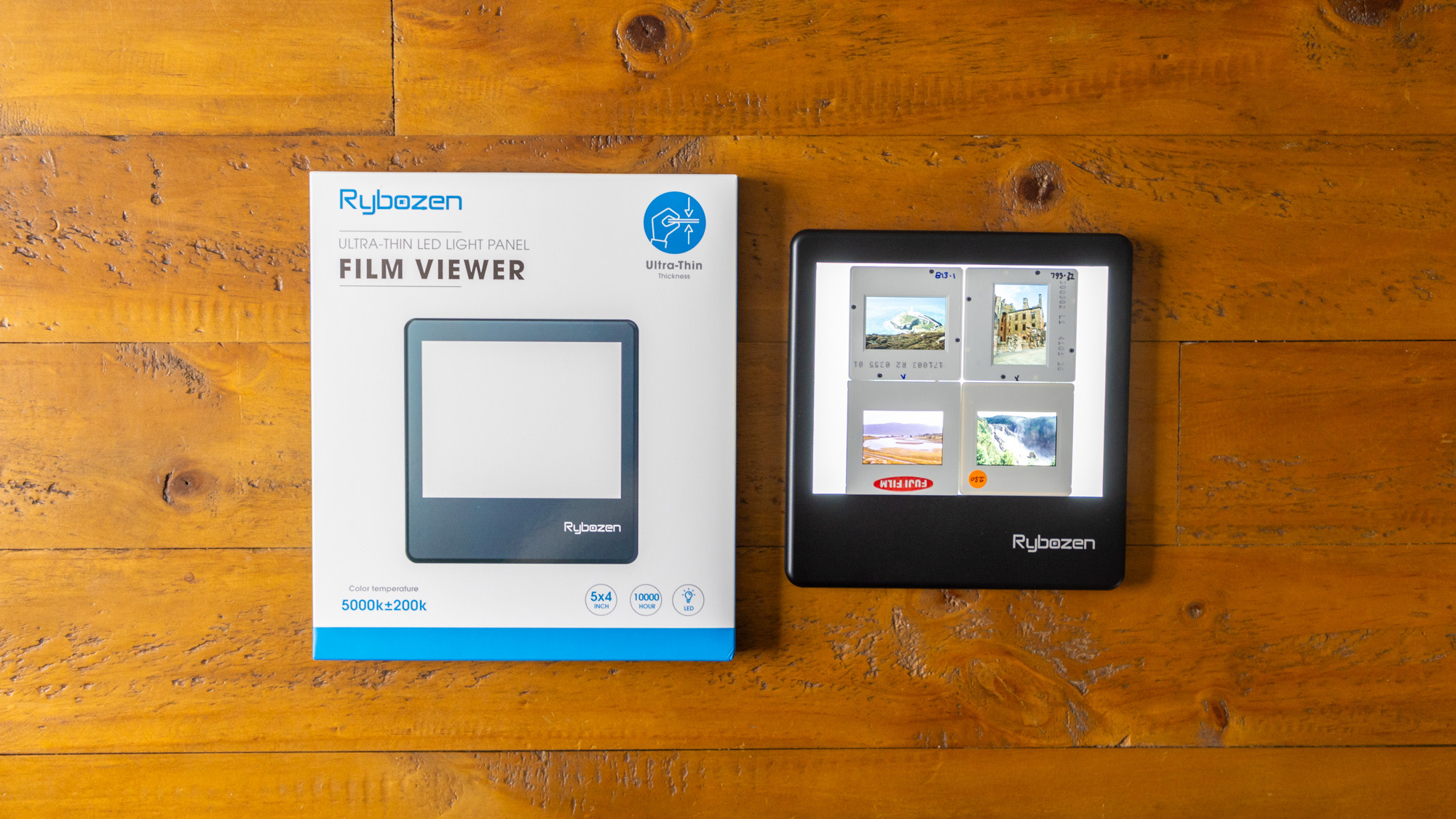
Rybozen is a relative newcomer to the electronics space with the company being founded in 2014. Since then, the company has continued to bring affordable consumer electronics and accessories to market including USB switchers, hubs and headphones, though its the company’s Ultra-Thin Portable 5x4in LED Slide Scanner which I’ve got hold of and will be assessing in this review.
It’s very budget friendly at just $20 so I was eager to find out how if it was any good for both viewing old slide transparencies and negative strips and also using its app to digitize the images too and breathe new life into old pictures with a digital version you can scan straight to your smartphone.
Rybozen claims its light pad is professional and offers the ‘best scanning quality’, so without further ado let’s get into it and see if it’s worth your time and money.
Rybozen Ultra-thin 5x4" LED: Specifications
Rybozen Ultra-thin 5x4" LED: Price
With a price of $20 in the US and £23 in the UK at the time of writing, the Rybozen doesn’t break the bank and is in firm gift-giving territory. It’s worth noting that what you’re actually paying for is the 5x4in LED panel – the scanning function is done through Rybozen's SlideScan and FilmBox apps which have free trials, though after this many features are locked behind a steep paywall. That being said, there's nothing stopping you from using a different free scanning app, or even using your DSLR or mirrorless camera with a macro lens attached for much better quality results.
If you purely want to view your old slides and negatives you may also want to consider the Photolux/Zuma SV-3 or Kodak 35mm Slide Viewer which are both dedicated viewers with no scanning function, but they are in the same price ballpark.
Rybozen Ultra-thin 5x4" LED: Design & Handling
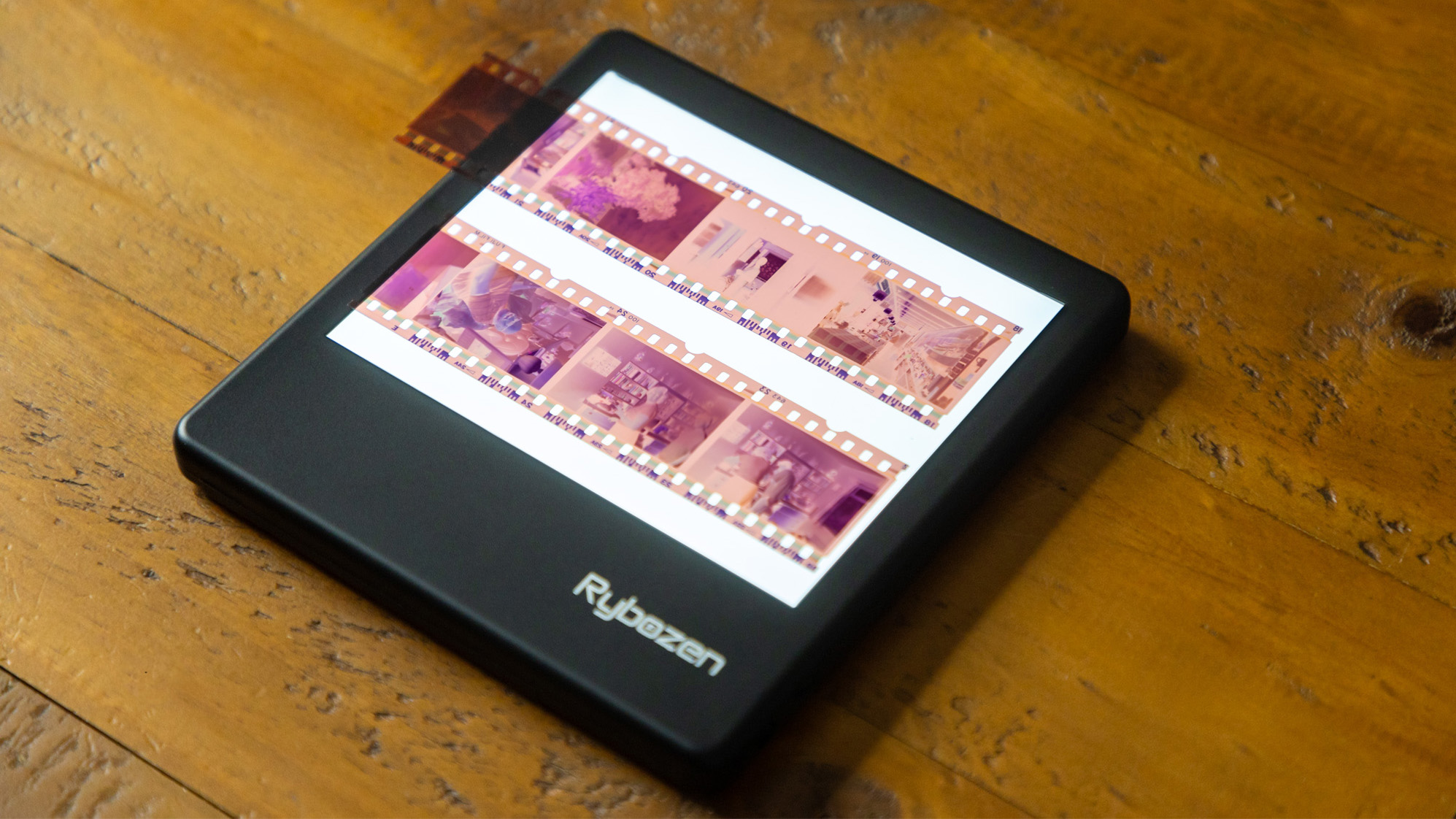
The Rybozen Ultra-thin slide scanner lives up to its name – it’s extremely thin with a depth of just 1.3cm. The plastic casing measures 6.2x5.9in and the working area of the LED panel is 5x4in – that’s large enough to fit six pieces of 135 negatives comfortably onto the backlight. It also comes boxed with a handy black cloth cover and a small instructions manual.
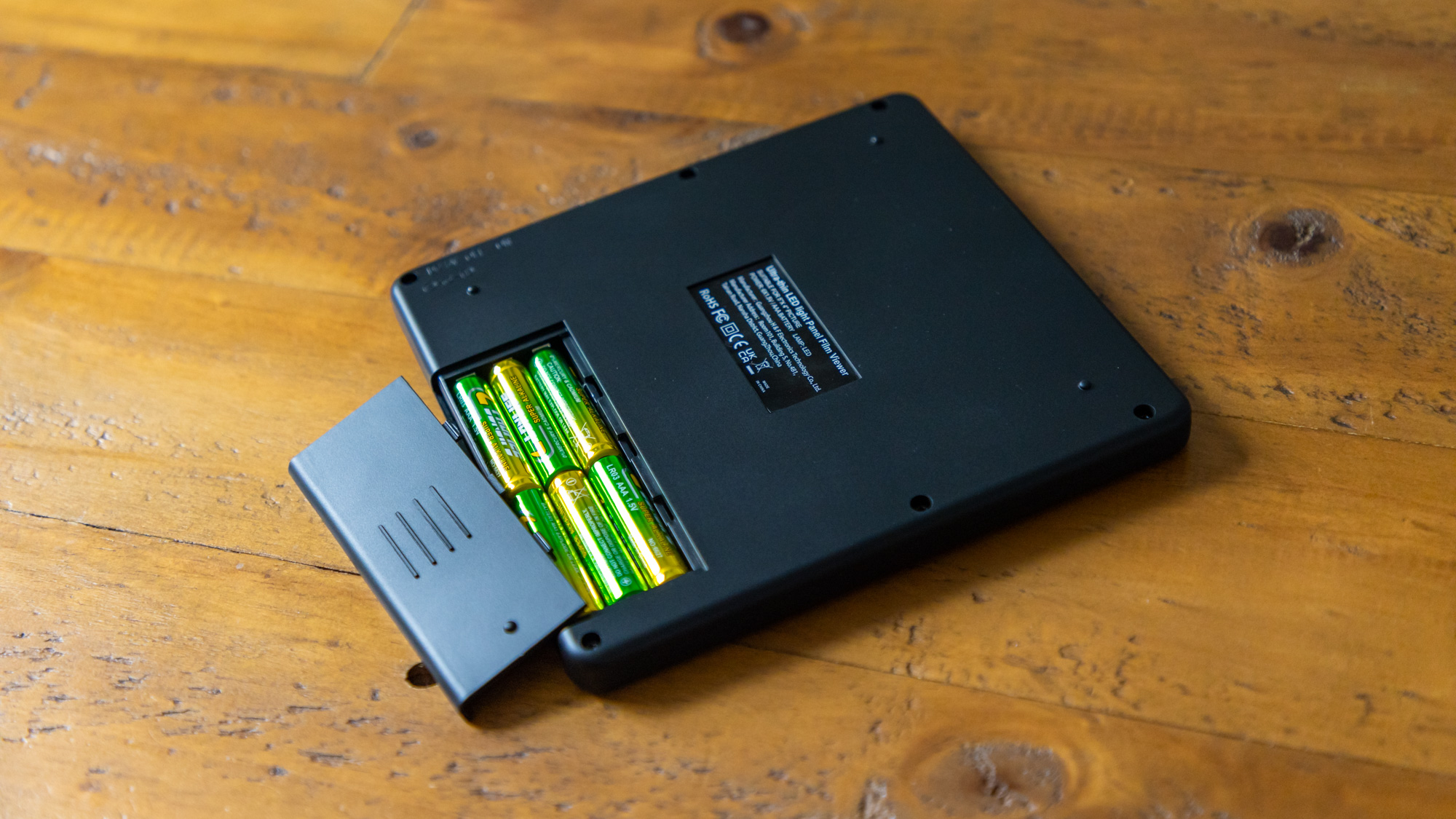
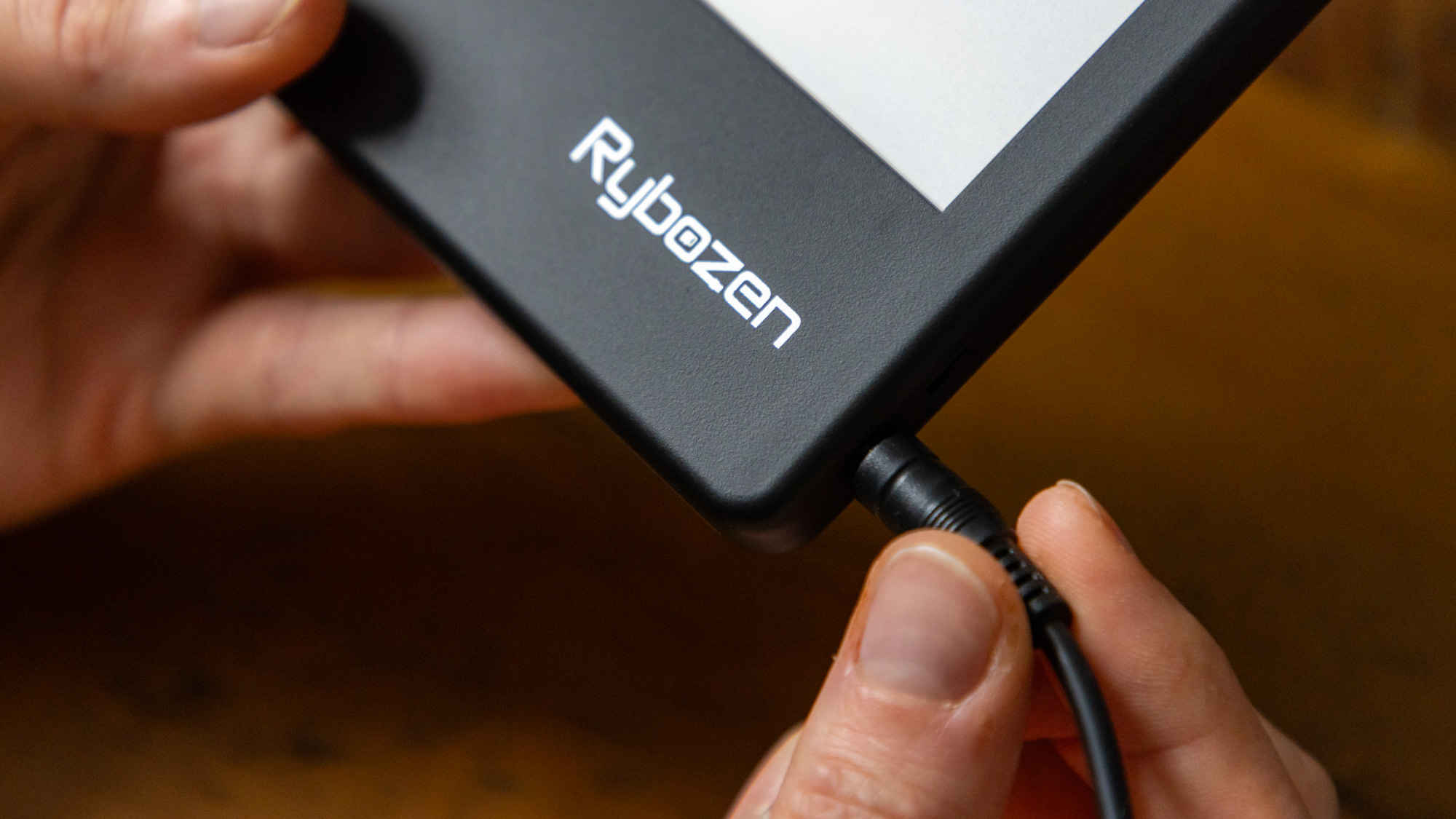
The size of the Rybozen is a real benefit as it’s so thin it easily tucks away in a drawer and is easily stowed in a shoulder bag or backpack if you want to take it with you on the go. Speaking of using it on the move, the Ultra-thin slide scanner can be powered by six AAA batteries which come bundled with it, and can also be powered by the provided USB cable, this is the more common USB-A male connector, so you’ll need an adapter when using a modern laptop with USB-C ports.
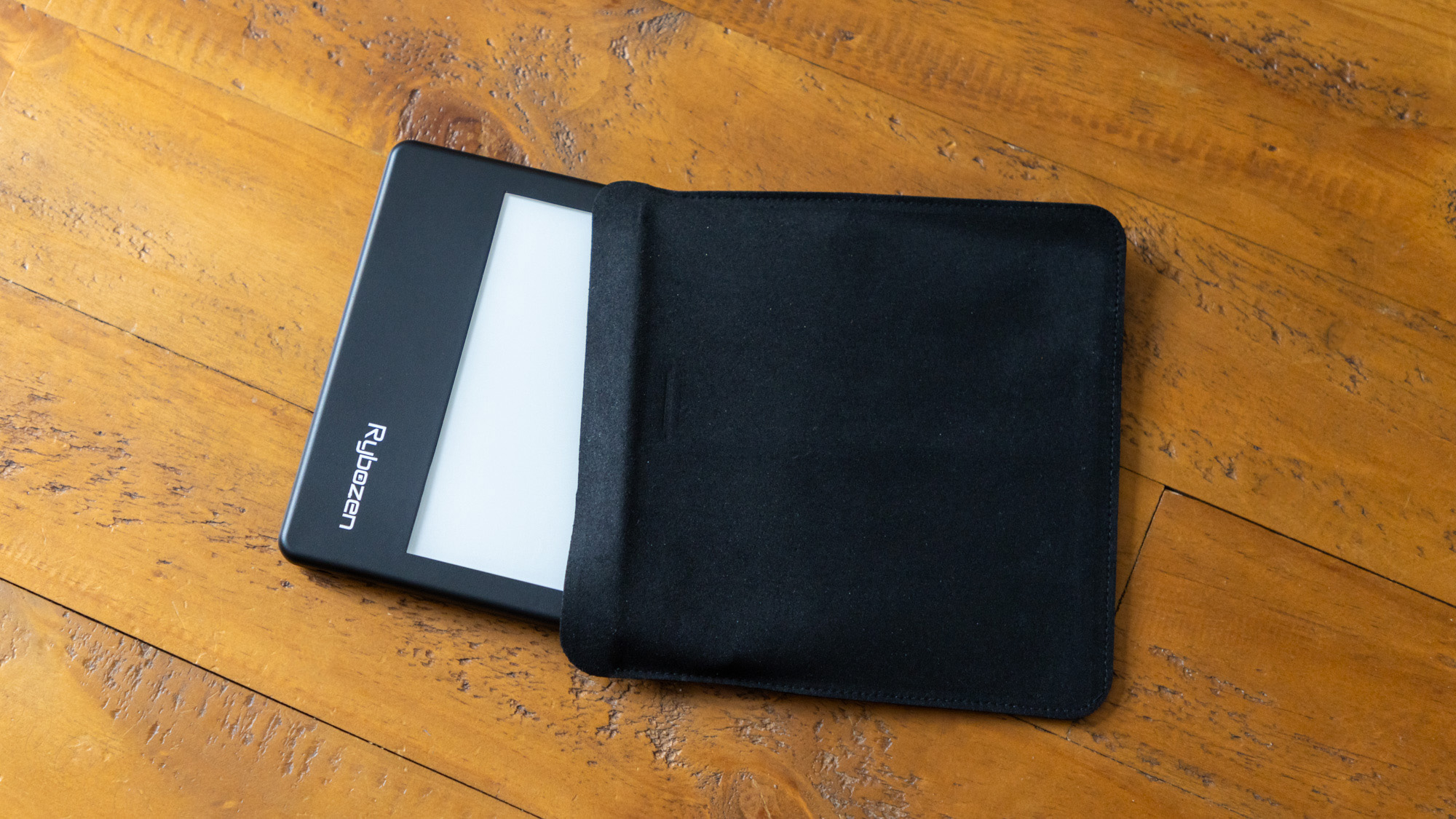
The LED lamp is rated at a natural daylight color temperature of 5000k with Rybozen claiming it’s accurate within 200k. Rybozen also claims the LED doesn’t get hot and is very efficient, saying the lifespan of the lamp is over 10,000 hours. I didn’t have that long to test the lamp to find out, but in my extensive tests the six AAA batteries held up and I never found the light to get warm. This is welcome news as hot LEDs and bulbs have the potential to warp and melt the delicate film material. So top marks to Rybozen here.
The physical LED light panel is only half of what you’re paying for, with the other functionality coming from the software you use with it. Rybozen has two apps (FilmBox and SlideScan) you can install on your smartphone for use with its panel – more on how these apps performed in the next section…
Rybozen Ultra-thin 5x4" LED: Performance
Rybozen claims its cooler LED light is 5000k within a 200k tolerance and says it creates a uniform light to restore the lifelike effect of any object and restore the color of your film to 98% the original. In my experience it performed very well and the light diffusing acrylic panel does a great job at distributing the light across the 5x4” viewing area. Some users noted online that the light tended to fade towards the edges but that wasn’t my experience. And whilst the 5x4” panel is designed for up to six 135 negatives, I actually found you could load up nine by overlapping the film sprocket holes of each feel reel. The LED panel never got warm when I tested it so there’s no risk of your film warping from high temperatures here.
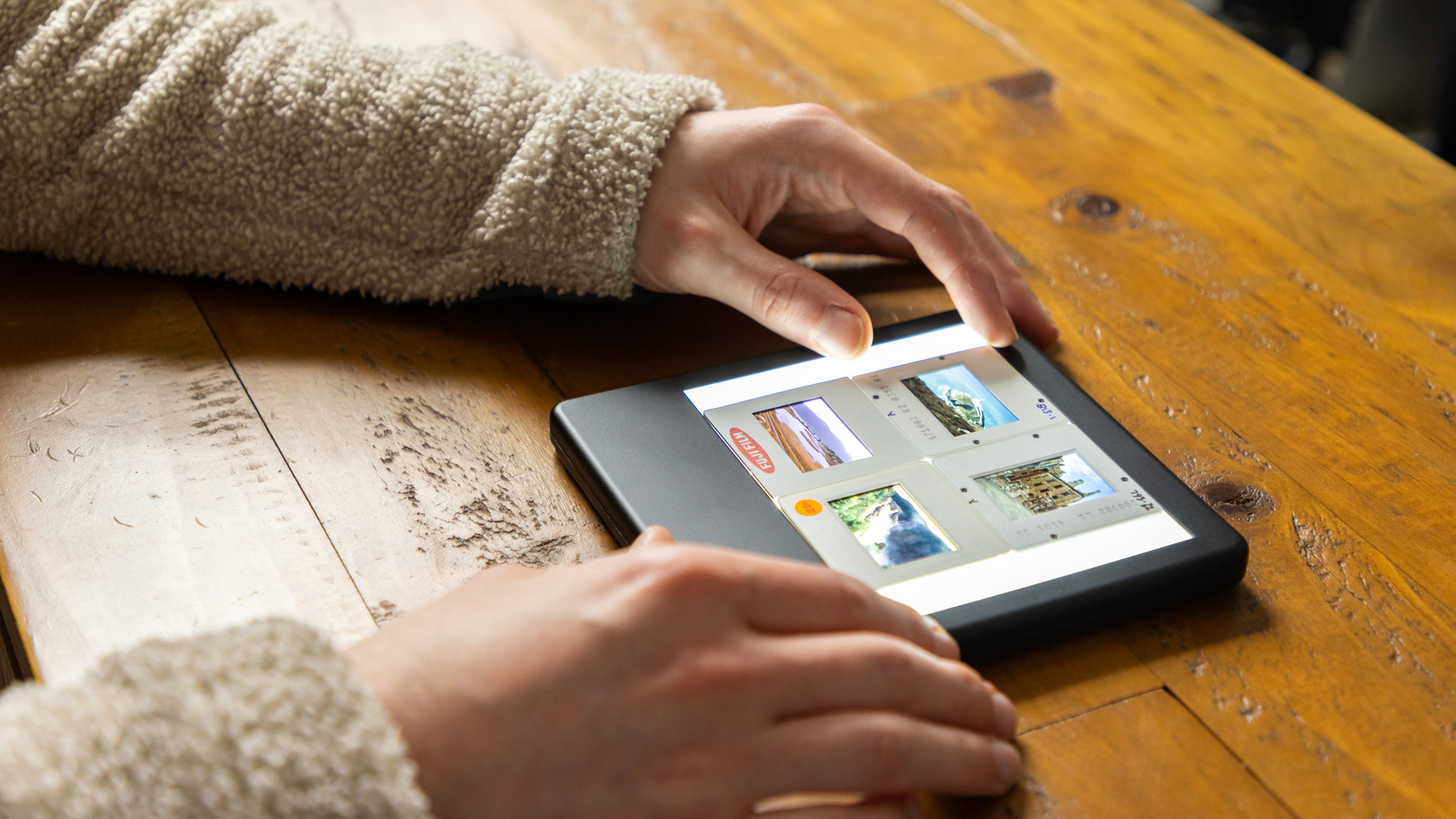
I had no complaints from a power point of view – it’s great to have the option to plug the panel in via the provided USB cable, though note this is the older USB Type A male connection so you’ll need an adapter if using with a more modern computer that has USB-C ports. And it’s nice to have the option to power it by six AAA batteries too, and I’m glad Rybozen went with AAA style batteries as this helps keep the panel flat and slender. So powering it by batteries is great for taking it on the go and gives you another option. Six AAA batteries come packaged with the device to get you started and they lasted for my entire time testing, I imagine the LED lights are very efficient and aren’t too energy hungry.
A large part of how this product performs is how seamlessly it works with the smartphone software which is how you’ll be scanning your negatives and transparencies. Rybozen has two apps that can be used with the ultra-thin light panel, the first is FilmBox which is for negatives and the other SlideScan for color and B&W transparencies. One issue with phone apps is that they’re reliant on the quality of your smartphone’s camera, lens and resolution and suchlike so two different phones could provide wildly different results, that said I was really impressed with what I was able to capture on my Apple iPhone 12 mini. The interfaces for both apps are very similar, as you’d expect from being made by the same developer: Photomyne. Both apps have a very slick interface with graphics showing you the image being scanned and enhanced in realtime, plus there are plenty of guides and videos to show you how to use the app, it was nothing short of impressive.
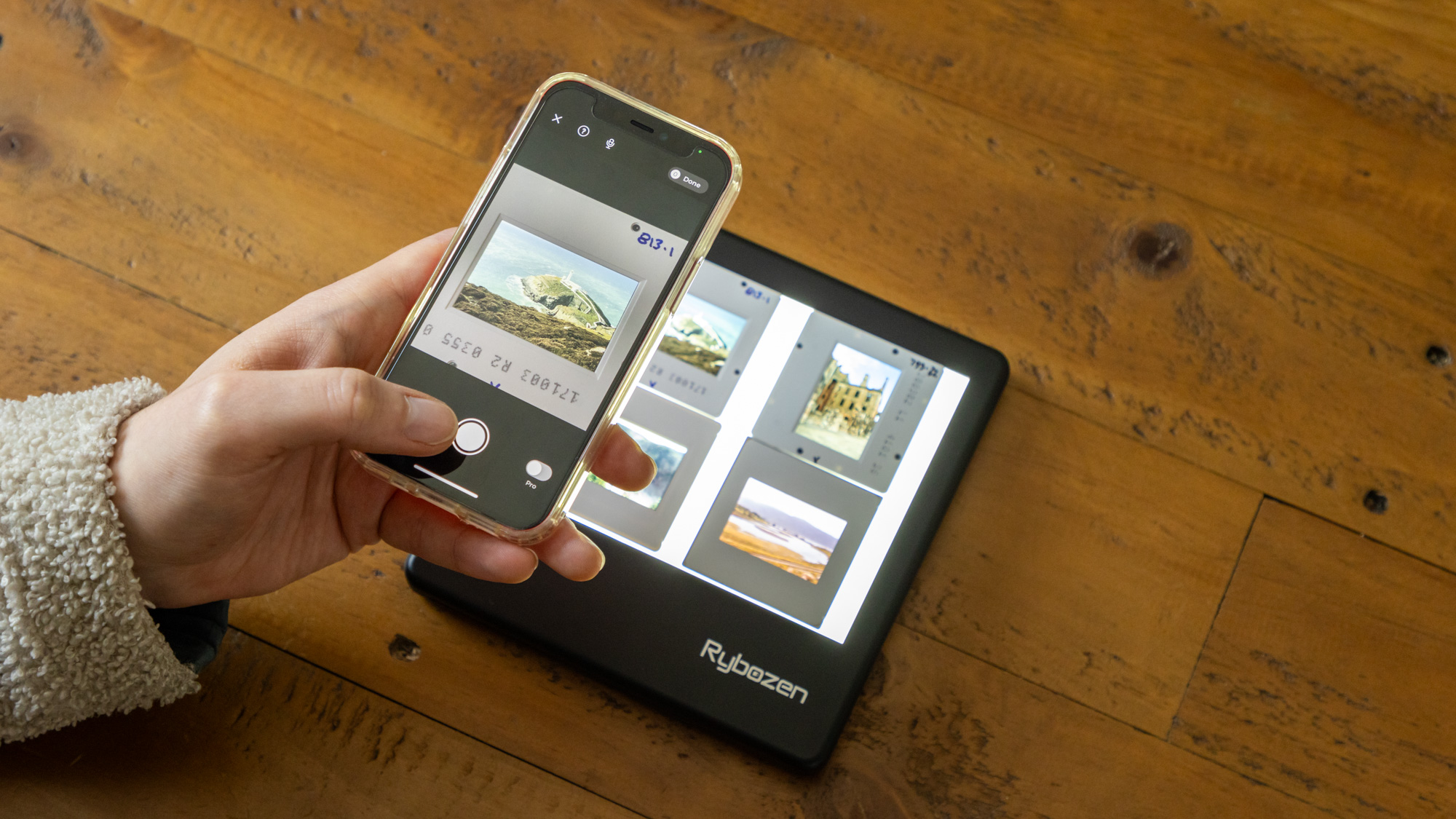
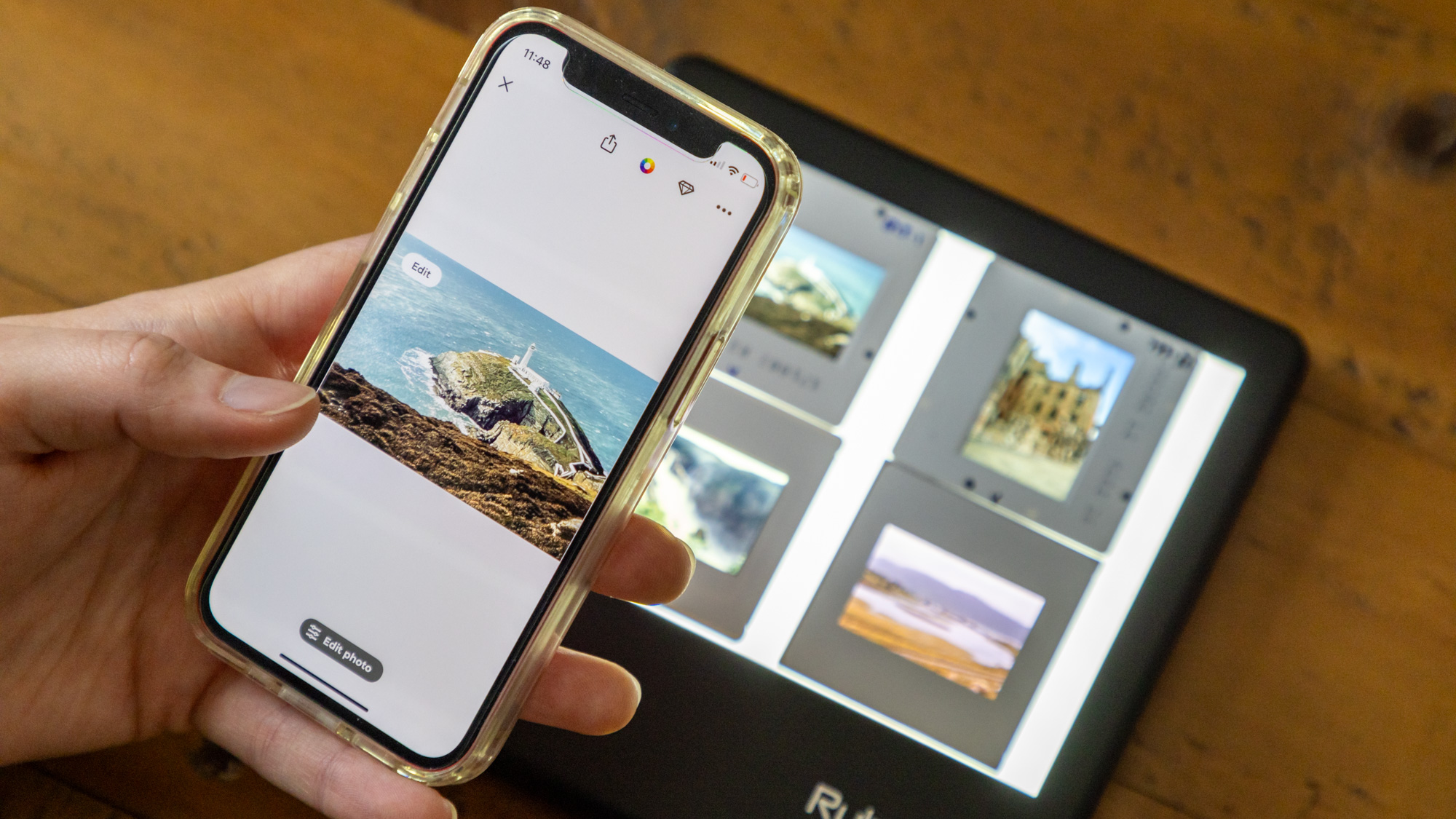
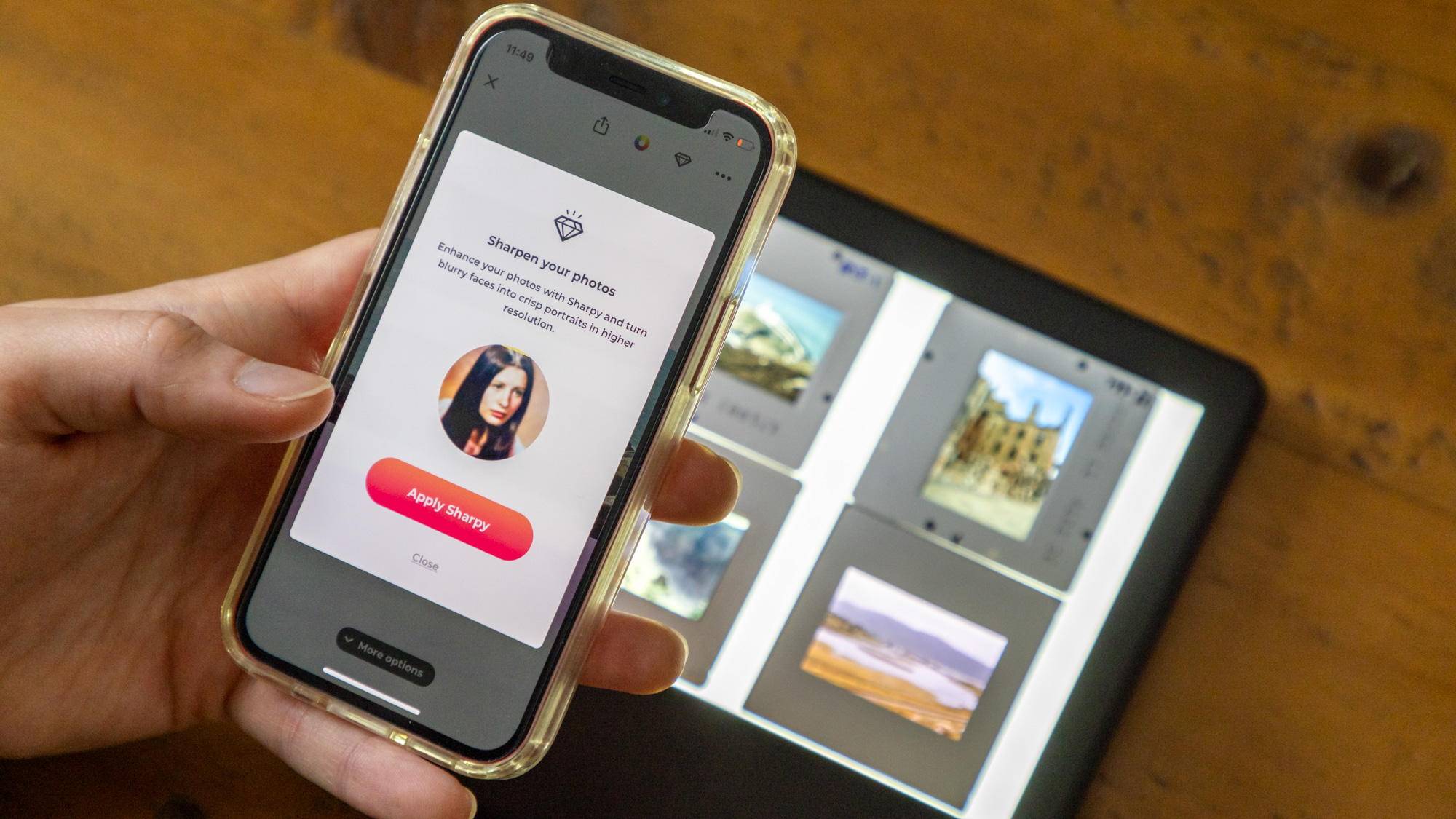
The downsides with the apps is that I wish they were combined into just one single app for ease of use and once loading it up you could switch between negatives or transparencies like on Kodak’s free Mobile Film Scanner app. My second reservation is that many features for the apps are locked behind a fairly steep paywall costing £9.99 monthly, £39.99 per year or £49.99 for two years. The apps make it clear that there is a free version with ads which is what I wanted to use, however no ads were ever displayed and I was simply asked repeatedly to start the 3-day free trial (after which it would automatically renew at £39.99 per year). I could scan and edit about four images before the paywall kicked in which was a real shame as I was having a lot of fun with both apps and they work really well with this issue to one side.
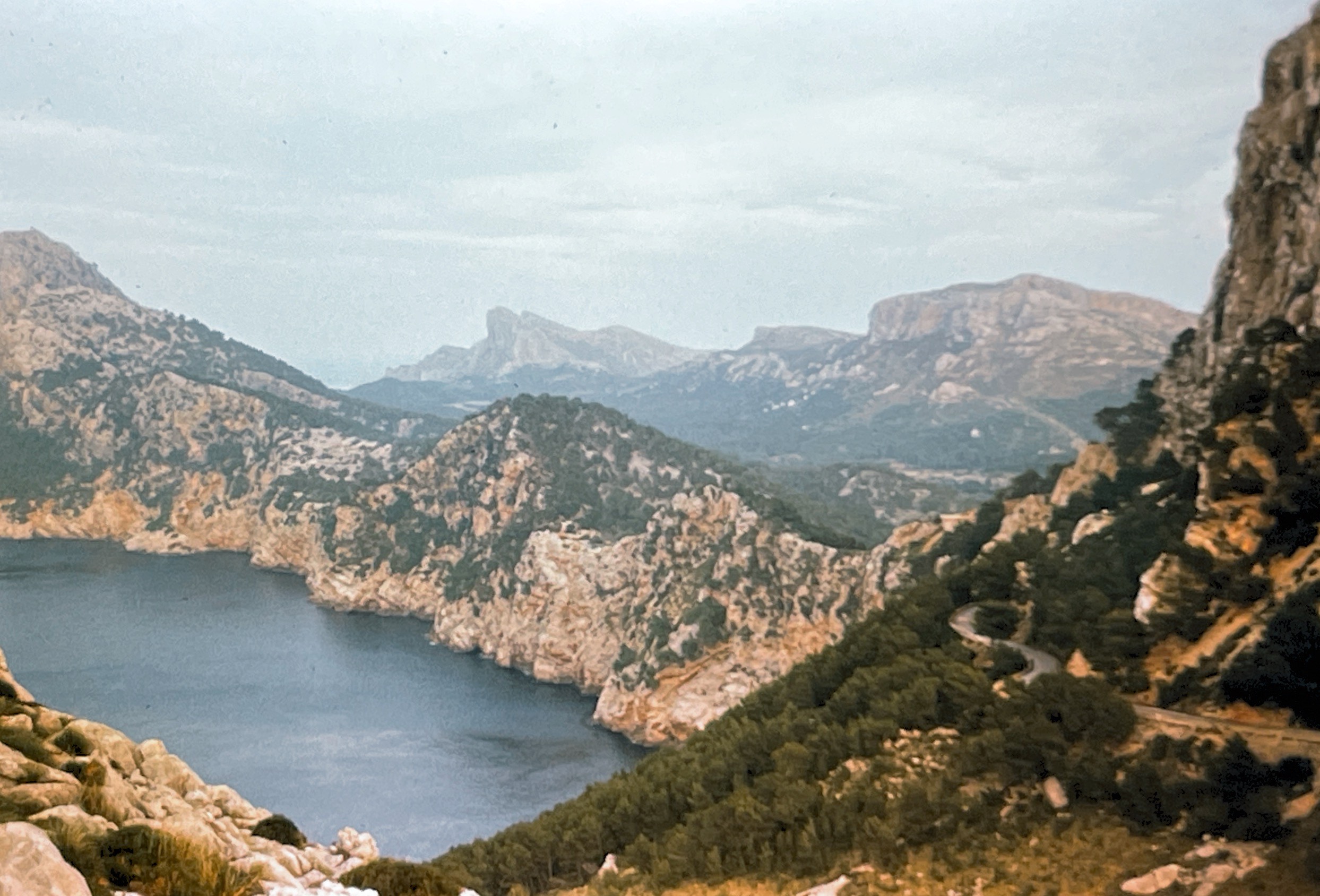
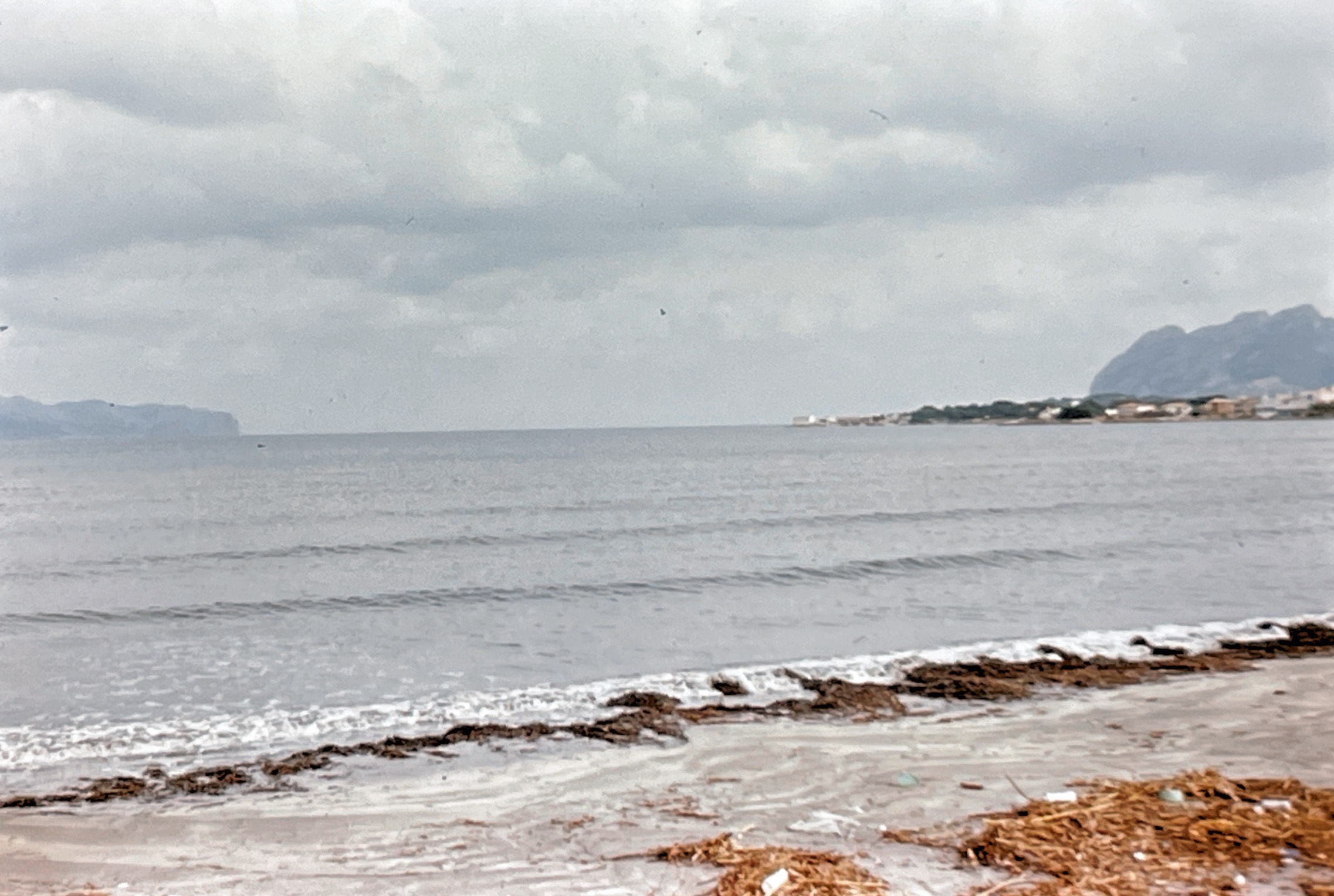
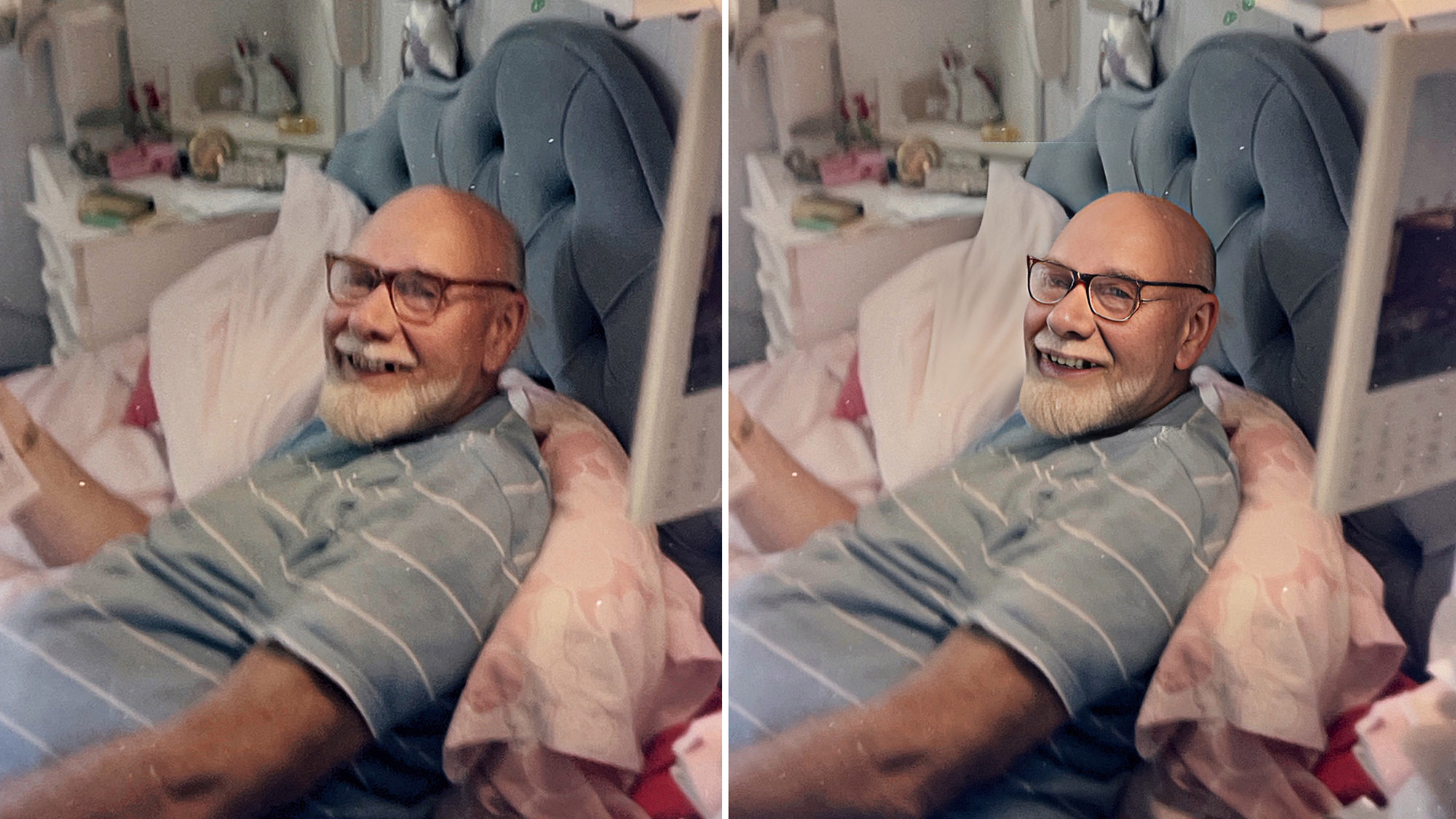
Features such as being able to scan, share hi-res versions and using the app’s AI sharpening filter called 'Sharpy' (which was surprisingly good) all become locked behind a paywall. I think this is rather cheeky of Rybozen, especially when companies like Kodak offer their Mobile Film Scanner app for free – to be fair, there’s nothing stopping you using Kodak's free app with this lightbox if you wanted to.
Putting the app issues to one side, the Rybozen ultra-thin 5x4” LED is a very good light panel and is great for looking through old negatives and transparencies, though you may even find you get best results ditching the apps altogether and using a DSLR or mirrorless camera with a macro lens for better quality and higher resolution. This would be a more manual process, as the apps automatically process and crop your shots, but the final results are likely to be much better if you put the time and effort in.
Rybozen Ultra-thin 5x4" LED: Verdict
Costing around $20 (US) or £20 (UK) the Rybozen Ultra-thin portable slide scanner is so affordable that there’s not a huge amount at stake and if you buy through Amazon you also have a free returns period for extra peace of mind.
Twenty bucks might seem a little steep for a rather basic plastic LED panel but it does what it says on the tin and has two apps available to download for free to help you get the most out of it. You can also load up six 135 film negatives at a time which speeds up patch processing.
How well your digitized scans come out is largely down to the smartphone you use it with and the varying factors of its resolution, lens quality and minimum focus distance too. Both of the SlideScan and FilmBox apps do a great job though to get the best out of them you’ll need to stump up more money to use them as both have key features locked behind a paywall. That said, they are really easy to use and intuitive, so for some users it could be worth the extra spend, or using the free 3-day trial – just remember to cancel before it automatically renews!
Some smartphones will perform better than others, depending on the lens quality, minimum focus distance and resolution are, but for more bulletproof results you could absolutely take a picture of your film and slides placed on the lightbox with your DSLR or mirrorless camera using a macro lens – it would take a little longer to edit them, compared to using the more automated process of the app, but you’ll likely get better results without having to part with any more of your cash.







